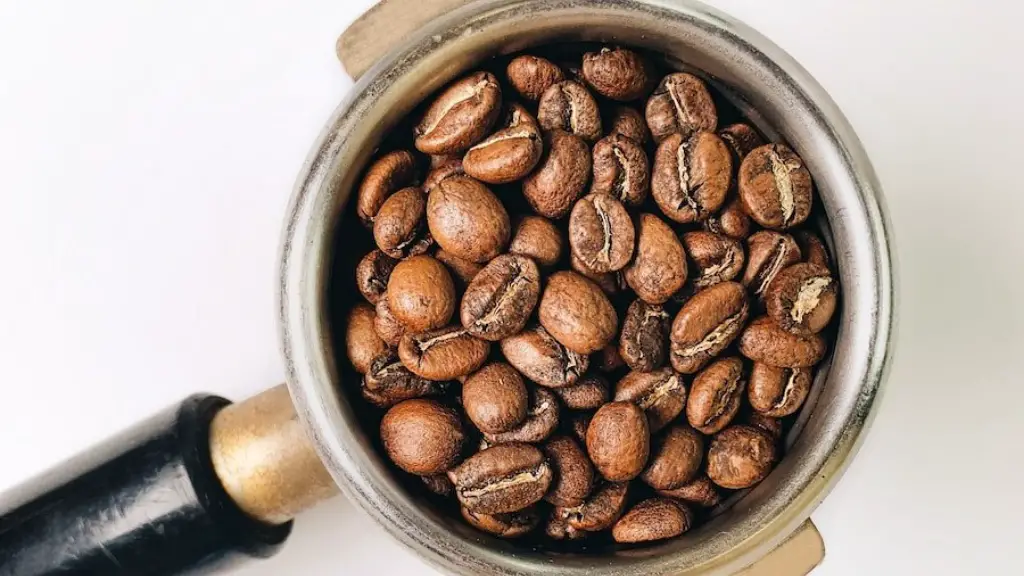California-based dietitian Chelsea Rousso shares a perspective about the question “Can I drink coffee during diet?” “Yes”, she says, “Coffee can be part of a healthful diet. In moderation, it can provide certain health benefits.” Recent research has found that there is no need to avoid coffee during diet. But, as with most beverages, there are certain guidelines to follow to ensure a safe dietary plan.
Dietitians and physicians agree that three to four cups of coffee can be beneficial during a diet. When consumed without cream, sugar, or other additives, coffee provides many essential vitamins and minerals, such as antioxidants, potassium, and magnesium. Research has also shown that moderate amounts of coffee can improve cognitive performance, reduce the risk of stroke and heart disease, reduce the risk of type 2 diabetes, and protect against certain types of cancers.
However, individuals should be aware that not all coffees are the same. Some coffees are more calorie-dense and contain more sugar than others. If the goal is to lose weight, the choice of coffee should be taken into consideration. Also, an individual should be aware that drinking too much coffee may lead to side effects, such as dehydration, anxiety, insomnia, increased heart rate, and increased blood pressure.
In order to make sure the body is getting the most out of the coffee, experts suggest using healthy alternatives to cream and sugar. Home-brewed coffee is the best option because it allows the drinker to keep track of what goes into the cup. Substitutes such as cinnamon, nutmeg, and honey can add flavor to the coffee, in addition to providing added nutrients.
Furthermore, when following a diet, it is important to make sure that the body is getting the necessary nutrients from other sources. Adding a few tablespoons of flaxseed to a cup of coffee is an excellent option. Flaxseed is high in omega-3 fatty acids, which can support healthy blood sugar levels and improve heart health.
Lastly, dietitians advise limiting intake of coffee when it is accompanied with high-calorie treats or snacks. Foods such as muffins or donuts can contain as many calories and sugar as several cups of coffee. To ensure that the body is getting the most benefits from the coffee and still maintain a healthy diet, individuals should choose snacks that are low in calories and sugar.
Healthy Additives In Coffee During Diet
Adding healthy additives such as low-fat milk, almond milk, or soymilk can help increase the nutritional benefits of drinking coffee. These milks offer more vitamins and minerals and can help increase the overall flavor of the coffee. Additionally, adding nut butters, such as almond butter or peanut butter, can also provide a boost of healthful fats and proteins to the beverage.
Research has also found that adding green tea to coffee can further increase health benefits. A cup of coffee with green tea helps maintain antioxidant levels in the body and can play a role in weight loss. Because of its low calorie content, green tea can be added to coffee without any additional sugars or sweeteners.
Coconut oil is another great addition to coffee during diet. Coconut oil is rich in natural medium chain fatty acids and is known to increase energy levels and promote fat burning. Adding just a tablespoon of coconut oil to coffee can help to increase the metabolism, improve mental clarity and focus, as well as make the beverage creamy and flavorful.
There are also many herbs and spices that can be added to coffee that can help in a diet. Ginger, cinnamon, and turmeric are known to boost metabolism and aid in digestion. Cardamom, nutmeg, and cloves are also natural flavor enhancers that can improve the taste of coffee without adding any calories.
Should Calories & Macronutrients Be Counted When Drinking Coffee During Diet
When drinking coffee during diet, it is important to be mindful of calories and macronutrients. While coffee is mostly calorie free, adding sugar, cream, or other sweeteners can quickly add up the number of calories consumed. Similarly, heavy cream and butter add a significant amount of fat and saturated fat that can have a negative effect on the body. In order to get the most benefits from coffee, individuals should be mindful of the calories and macronutrients they are consuming.
For those trying to lose weight, experts suggest keeping track of calorie and macronutrient intake. A dietitian or nutritionist can help individuals choose healthier coffee options and ensure that the diet is meeting the individual’s goals. Additionally, a dietitian can help individuals to create a meal plan while following a diet that includes coffee.
In the end, individuals should remember that coffee can be part of a healthful diet. However, it is important to be mindful of calorie and macronutrient intake when drinking coffee. With the right diet and healthy modifications, individuals can enjoy coffee and still reach their diet goals.
Alternatives To Regular Coffee for Dieters
For individuals who prefer to reduce the amount of caffeine intake during diet, there are some alternatives to regular coffee. Caffeine-free herbal teas, such as chamomile and hibiscus, are excellent options. Herbal teas are rich in antioxidants and can provide calming and digestive benefits.
Additionally, chicory and dandelion root coffees are excellent alternatives for those who want to reduce or avoid caffeine. These coffees offer a similar flavor profile to traditional coffee, without the added caffeine. Furthermore, these coffees are packed with essential vitamins and minerals and can promote healthy digestion.
Adding low-sugar fruits such as strawberries, blueberries, and raspberries to coffee can also provide a natural sweetness and added nutrition. The capsaicin from chili peppers can also be added to coffee for a slight kick of heat and metabolism-boosting benefits. Adding flavors such as almond extract, vanilla, or hazelnut can help to improve the taste of coffee without adding any sugar or calories.
Practical Tips To Follow While Drinking Coffee During Diet
In order to make sure that coffee is incorporated into a healthful diet, there are some practical tips to follow. Individuals should avoid adding too much sugar, cream, or sweeteners to their coffee. They should stick to a lower-calorie alternative, such as almond milk or coconut milk. Additionally, individuals should try to limit their intake of other sugary drinks, such as sodas and juices.
Furthermore, individuals should not rely on coffee as the only source of hydration. Coffee is a diuretic, which means it causes the body to lose fluids. Drinking plenty of water throughout the day is essential for maintaining hydration and should be taken into consideration when following a diet.
Finally, adding healthy snacks to one’s diet can help to provide energy and reduce cravings. Snacks such as nuts, fruits, and vegetables can provide essential nutrients and can help to reduce the number of calories consumed. Adding healthy snacks to a diet can help to make sure that the body is getting all the nutrients it needs while avoiding excess weight gain.
Implementing Coffee In Diet
Incorporating coffee into a diet can be beneficial, as long as it is done with the right knowledge and moderation. Individuals should remember to choose healthy additives and avoid sugary or fatty additives. They should also be mindful of the calories and macronutrients they are consuming when drinking coffee. Additionally, they should strive to drink plenty of water and add nutritious snacks to their diet so that they are getting all the nutriments they need.
Moreover, when following a diet that includes coffee, it is important to listen to one’s body and make sure that the coffee is not causing negative side effects. Coffee can be a great addition to a diet, but individuals should be aware of the risks associated with over consumption. With the right knowledge and advice, individuals can enjoy coffee and still be able to reach their diet goals.




